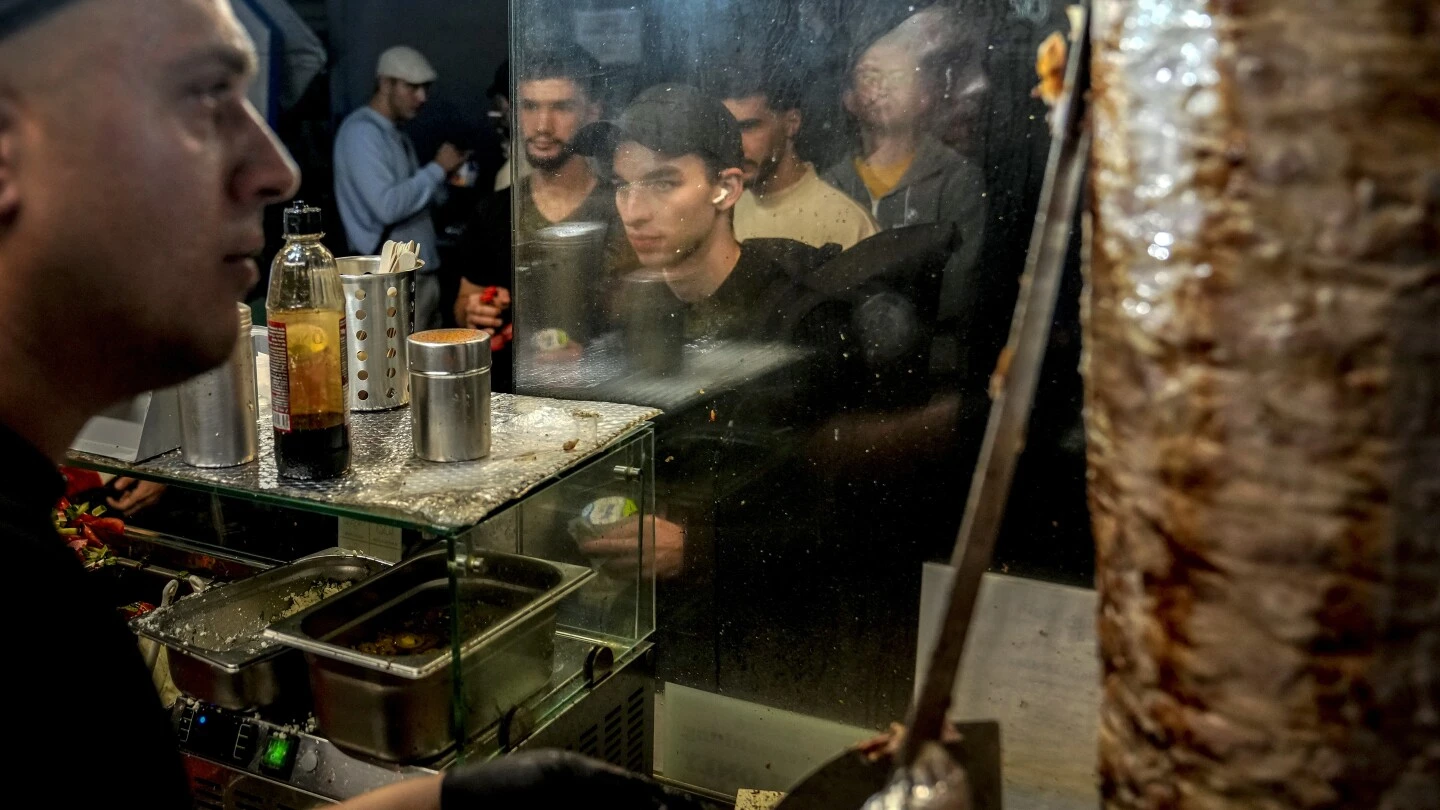Beef and chicken glisten as they rotate slowly on vertical spits before they are carved off in razor-thin strips. Two cooks slide from a sizzling griddle to a warm toaster in a practiced dance. Mounds of fresh tomatoes, cabbage and red onions shine in a colorful tableau.
The scene at Kebap With Attitude in Berlin’s trendy Mitte neighborhood is typical of any street-side stand or restaurant where cooks pile the ingredients into pita bread to create the city’s beloved döner kebab.
But the snack’s status could be in jeopardy if the European Commission approves a bid by Turkey to regulate what can legally take the döner kebab name.
In the balance is an industry that generates annual sales of roughly 2.3 billion euros (nearly $2.6 billion) in Germany alone, and 3.5 billion euros (nearly $3.9 billion) across Europe, according to the Berlin-based Association of Turkish Döner Producers in Europe.
…
In April, Turkey applied to have döner kebab protected under a status called “traditional specialty guaranteed.” It’s below the vaunted “protected designation of origin” that applies to geographic region-specific products, like Champagne from its eponymous region in France, but could still impact kebab-shop owners, their individual recipes and their customers throughout Germany.
Under Turkey’s proposal, beef would be required to come from cattle that is at least 16 months old. It would be marinated with specific amounts of animal fat, yogurt or milk, onion, salt, and thyme, as well as black, red and white peppers. The final product be sliced off the vertical spit into pieces that are 3 to 5 millimeters (0.1 to 0.2 inches) thick. Chicken would be similarly regulated.



Well that’s Berlin’s fault for chosing doughnuts so speedily. If they’d held out longer a Berliner could have been a delicious meat-based food item.